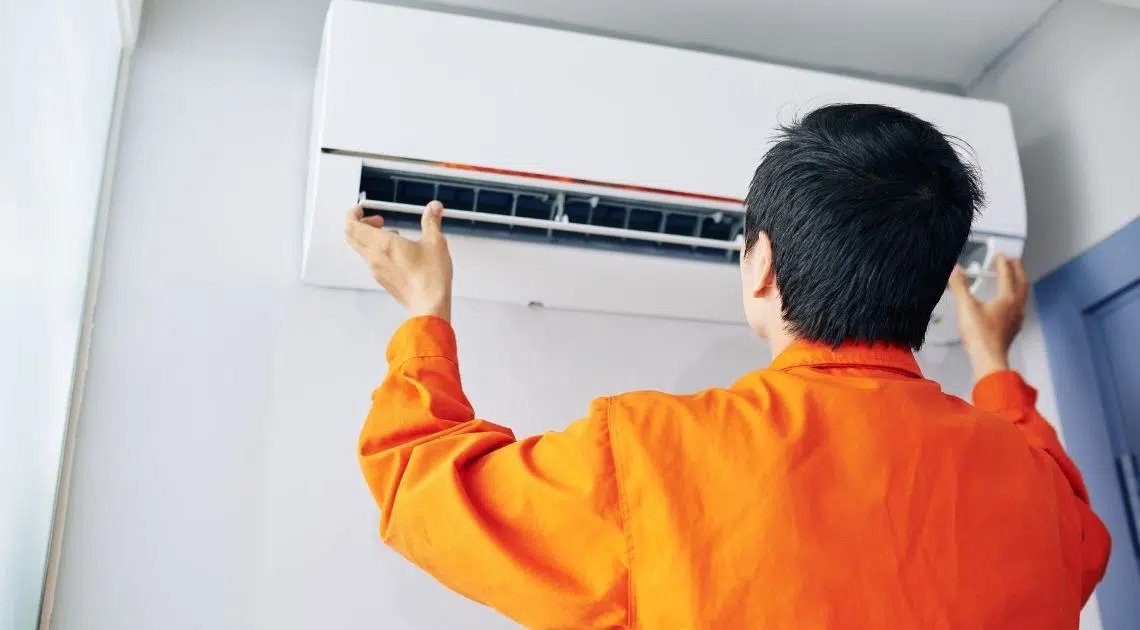When it comes to maintaining a comfortable and healthy indoor environment, your air conditioning system plays a pivotal role. Not only does it keep your home cool and pleasant during scorching summers, but it also has a significant impact on indoor air quality. Regular Ducted Air conditioning Wahroonga is the key to ensuring that the air you breathe is clean and free of pollutants. In this blog, we’ll delve into the importance of AC maintenance in improving indoor air quality.
The Link Between AC Systems and Indoor Air Quality
Before we dive into the benefits of AC maintenance, it’s essential to understand the connection between your air conditioning system and indoor air quality.
- Filtration: Most modern AC systems are equipped with air filters that trap dust, pollen, pet dander, and other airborne particles. These filters help to improve indoor air quality by reducing the concentration of allergens and pollutants in the air.
- Humidity Control: Air conditioners also play a role in regulating indoor humidity levels. Maintaining optimal humidity levels can prevent mold growth, which can release harmful spores into the air.
- Ventilation: AC systems circulate and filter the air in your home, which means they can help remove indoor air pollutants. Proper ventilation and air exchange are crucial for eliminating stale air and replacing it with fresh outdoor air.
The Importance of Regular AC Maintenance
Now that we’ve established the connection between your AC system and indoor air quality let’s explore how regular maintenance can make a significant difference:
1. Clean Filters Improve Air Quality
Air filters in your AC system need to be cleaned or replaced regularly. Over time, these filters become clogged with dirt, dust, and allergens, reducing their effectiveness. When filters are dirty, they cannot capture airborne particles efficiently, which can lead to a decline in indoor air quality. Routine maintenance ensures clean filters, allowing your system to do a better job of filtering out pollutants.
2. Prevent Mold and Mildew Growth
Air conditioning systems can become a breeding ground for mold and mildew if not properly maintained. The cool and damp environment within the system provides an ideal setting for these microorganisms to thrive. When they grow, they can release spores into your indoor air, leading to respiratory issues and poor air quality. Regular maintenance includes cleaning and disinfecting your system, reducing the risk of mold and mildew growth.
3. Energy Efficiency and Air Quality
An efficiently running AC system not only consumes less energy but also operates more effectively at filtering the air. When your system is well-maintained, it can keep your indoor environment cool and fresh without straining, ensuring that the air in your home remains clean and healthy.
4. Identification of Potential Issues
Regular maintenance doesn’t just enhance the air quality; it also helps identify potential problems with your AC system early on. A technician can spot issues like refrigerant leaks or malfunctioning components during routine inspections, preventing them from escalating into more significant and costly problems. This proactive approach ensures your AC system continues to provide high-quality air filtration and cooling.
5. Enhanced Comfort
A well-maintained AC system is more efficient at regulating temperature and humidity, which directly impacts your comfort and overall well-being. By ensuring your system runs optimally, you can enjoy a more comfortable living environment with superior air quality.
In the pursuit of a comfortable and healthy home, your air conditioning system should never be overlooked. Regular AC maintenance not only extends the lifespan and efficiency of your system but also significantly contributes to improved indoor air quality. Clean filters, reduced mold growth, and efficient operation are just a few of the many benefits of keeping your AC system in top shape. So, take the time to schedule regular maintenance to breathe easy and enjoy the benefits of cleaner, healthier indoor air.
